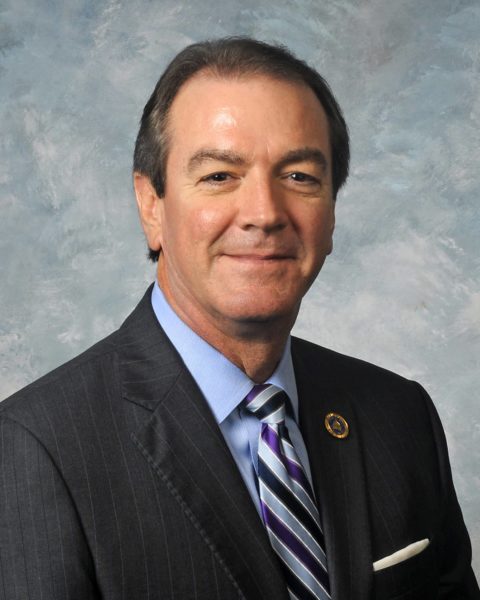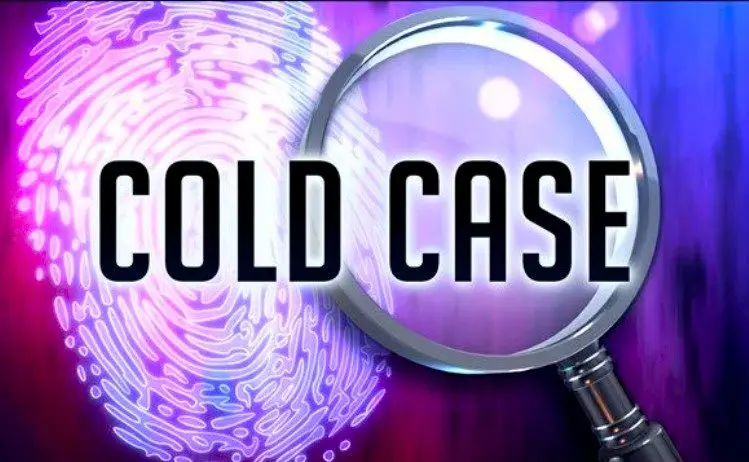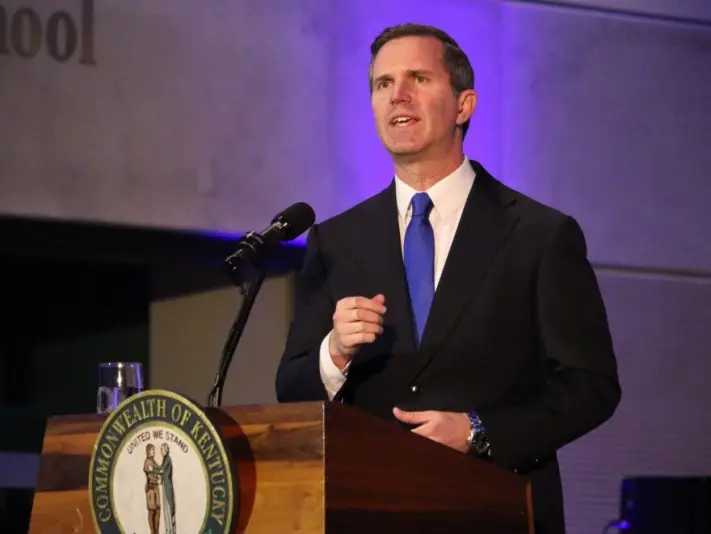Three percent.
The state’s personal income tax rate can’t go down any further than 3% without making major changes to the way Kentuckians are taxed, according to House Speaker David Osborne, R-Prospect.
“I think we have to be realistic with the fact that growth will not carry us beyond 3% in the foreseeable future,” Osborne told the Herald-Leader after a policy luncheon Thursday hosted by Commerce Lexington, the area’s chamber of commerce.
“We’ve always known it would only carry us so far, which is why every other state that has gone to zero has dramatically increased sales taxes.”
Since the 2022 legislative session with the passage of House Bill 8, Kentucky’s been on a path to reduce the income tax from 5% all the way to zero.
Some Democrats and budget watchdog groups like the Kentucky Center for Economic Policy have raised alarm that the decreases will blow a massive hole in the budget, eventually deprioritizing needed government services.
However, it’s become a hot talking point for Republicans, including several candidates for the gubernatorial nomination last year who argued in favor of getting to zero income tax as quickly as possible.
That’s looking less likely.
Why? Osborne and Senate President Robert Stivers, R-Manchester, the two most powerful people in the state legislature, pointed to serious fiscal needs looming over the state, including education expenses, pension debt and the Medicaid budget.
The state’s massive pension liabilities are of particular concern to Osborne, he told the crowd at Commerce Lexington. The state has already put in an extra $24 billion beyond its actuarial required contributions in the past eight years. He said the state still has $30 billion in liabilities left to pay, with required contributions expected to increase in the coming years.
Even though the revenue collected by the individual income tax is going down, it’s still the biggest source of funding for the state.
So far, that number has fallen twice in 0.5-point increments to 4%. In all likelihood, the state will hit the necessary fiscal triggers, prescribed in statute, this year to drop to 3.5% in 2026.
Given that state taxation is often a matter of balancing income and sales tax — Kentucky has no significant state property tax — the state may be faced with a choice of either holding at 3% income tax rate or raising the state’s 6% sales tax, which could prove politically toxic.
“At some point in time, we will have to have a conversation of ‘do we want to accelerate (the income tax cut), do we need to accelerate it?’ My suspicion is we won’t,” Osborne said. “I think we’ll find ourselves in a hybrid position where we don’t eliminate our income tax but also won’t have significant sales tax increases.”
This April, at a 4% rate, the individual income tax brought in $802 million of $1.8 billion in General Fund receipts. That’s compared to April 2023, when the rate was 4.5% and the state brought in $823 million, and 2022, when a 5% rate generated more than $967 million.
Sales and use taxes, which were broadened to cover more services during 2022’s major tax reform, haven’t increased enough to fully fill the hole. In the last three years, April receipts from those taxes were $536 million in 2022, $568 million in 2023 and $586 million in 2024.
The third-largest source of tax revenue for the state is major business taxes, which brought in $324 million to the General Fund this April.
The current budgetary “triggers” that need to be met to cut income tax another 0.5 percentage points include a healthy balance of the Budget Reserve Trust Fund — often called the rainy day fund — and that tax revenues hit a certain mark.
This legislative session, lawmakers permanently exempted appropriations from the Budget Reserve Trust Fund from the “triggers,” making it easier to continue to cut the income tax.
Stivers told the Herald-Leader that “everything is on the table” when it comes to changing the tax code.
“There’s not a single fix in the equation. We may want to look at a totally different taxing model. You look at Tennessee where they have no income tax, but they have a 7% state sales tax, and a 2.25% local tax,” Stivers said. “That’s totally different than our model.”
Osborne also mentioned looking at Indiana, where the income tax rate is 3.05%.
POLICY, POLITICAL REACTION
Budget hawks on both sides of the political aisle are pleased to hear that legislative leaders signal they’re looking closely at the issue.
Jennifer Bird-Pollan, a professor at the University of Kentucky College of Law who specializes in tax law, is no fan of cutting the state income tax. She’s encouraged that the legislature may pump the brakes on its drive to get to zero income tax.
Bird-Pollan considers lowering the income tax a regressive policy that disproportionately benefits the wealthiest Kentuckians.
With the exception of a 100% tax credit for families at or below the federal poverty line, the state’s income tax rate is applied evenly to all earners regardless of income. Therefore, the drop from 5% to 4% has saved someone making $500,000 per year an extra $5,000. For a Kentuckian earning $50,000, they’ve saved only $500 annually.
“Whether you tax their consumption or tax their income, you are collecting revenues primarily from the people who live here. The question is: from whom do you think it is best to collect those revenues,” Bird-Pollan said. “The percentage of what’s available to people that they’re going to get taxed on is just way higher for lower income people when you start relying really heavily on sales taxes.”
“At the end of the day, most states end up having to choose between an income tax and a sales tax. There aren’t really any other meaningful sources of revenue through the tax system for states to rely on,” Bird-Pollan said.
Andrew McNeill, a former cabinet official under GOP governor Matt Bevin and president of the conservative think tank the Kentucky Forum for Rights, Economics and Education, thinks otherwise.
However, he also says there may be good reason to reevaluate course.
McNeill applauded the pro-business and free market mindset behind the push to get to zero income tax, but said that getting on par with Indiana without raising and expanding sales tax like Tennessee would be a win.
“Ideologically, getting rid of the state income tax certainly fits with the goals of market-oriented conservatives,” McNeill said. “From a policy standpoint, there is an argument to be made that it’s important to have three legs on the stool: a low, flat income tax; a flat sales tax that has a pretty broad base; and property taxes.”
Having a diverse tax system, he said, would make a state less vulnerable to economic fluctuations compared to one overly reliant on sales taxes.
Beyond questions of practicality, there may be other roadblocks to expanding or increasing the sales tax, which was already expanded to various previously untaxed services in 2022.
“I don’t know how much meat is left on that bone that’s politically feasible,” McNeill said.
Rep. Lisa Willner, D-Louisville, has proposed various tax-related bills in legislative sessions past, including one that would have increased income taxes on high earners compared to low and middle income earners.
She thinks that sales tax expansions are already a political problem.
“People complain about new sales taxes to me all the time,” Willner said. “’Why do I have to pay taxes on taking my dog to the vet?’ ‘Why do I have to pay taxes on my gym membership or to take an exercise class?’”
By Austin Horn, the Lexington Herald-Leader









